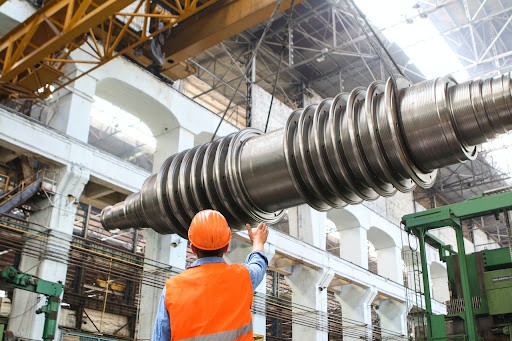
Gas is an important resource for many industries, from transportation to manufacturing and even agriculture. But it may have a notable influence on the environment if not used responsibly. Therefore, it is crucial if you want to realise massive savings to compare and save from looking at different energy suppliers.
We will explore which industries employ the most gas and how it can affect the environment.We will also look at how companies are trying to reduce their gas consumption to minimise their environmental footprint.
Finally, we will discuss what individuals can do to help reduce their own gas consumption and positively impact our planet.
Understanding How Different Industries Are Impacting Gas Consumption
Gas consumption is a major factor in the energy industry, affecting many industries. Understanding how different industries impact gas consumption is essential as global energy demand continues to increase.
Gas is a versatile and widely used energy source that is critical in many industries. Some of the industries that use the most gas include power generation, manufacturing, and transportation.
Power generation is one of the largest users of gas. Natural gas is a popular fuel source for power plants because it is relatively clean-burning and efficient. Natural gas accounted for approximately 42% of the total electricity usage in the United States in 2020. This is because natural gas power plants can ramp up and down quickly, which makes them well-suited for meeting fluctuating electricity demand.
Manufacturing is another major user of gas. Many manufacturing processes use natural gas as a raw material or fuel source. For example, it produces fertilizers, chemicals, and steel. It is also used as a source of heat for many industrial processes, such as drying, baking, and melting.
Transportation is another significant consumer of gas. Natural gas is a fuel source for vehicles, particularly in the form of compressed natural gas (CNG) and liquified natural gas (LNG). While still a small segment in transportation, the use of natural gas as a fuel source for vehicles has increased in recent years due to its lower emissions compared to diesel and gasoline.
The oil and gas industry itself also consumes a significant amount of natural gas. It is used in oil and gas extraction, processing, and transportation. It is also a fuel source for drilling rigs and other equipment.
What Technologies Are Available for Reducing Gas Usage in These Industries?
Burning natural gas also releases carbon dioxide and other greenhouse gases, contributing to climate change. However, natural gas is considered a cleaner-burning fossil fuel than coal and oil.
With growing environmental concern, many industries are turning to technology to reduce gas usage. Technologies such as fuel cells, hydrogen fuel cells, and hybrid engines are being used in a variety of ways to reduce energy consumption and emissions.
The Economic Benefits of Reducing Industrial Gas Usage
The use of industrial gas has a significant impact on the environment and economy. Reducing industrial gas usage can lead to numerous economic benefits, ranging from improved air quality to increased energy efficiency, reduced costs, and improved economic competitiveness.
Not only that, but reducing industrial gas usage can also help reduce greenhouse gas emissions and increase public health.
Exploring Solutions to Reduce Industrial Gas Consumption
While natural gas is a widely used energy source, it does have some environmental impacts. For example, the extraction and transportation of natural gas can result in air and water pollution.
The industrial sector accounts for a significant portion of global energy consumption and is responsible for a large share of greenhouse gas emissions. So, it’s important to find ways to cut down on industrial gas use to reduce the damage that industry does to the environment.
Some ways to cut down on industrial gas use are to make factories more efficient, find other sources of energy, and use carbon capture and storage technology.
To Summarise
Taking action to reduce industrial gas usage now is more important than ever, as it can help us reap the rewards in the future. Industrial gas emissions are a major contributor to climate change, and if we don’t take steps to reduce them now, we may face serious consequences later.
Fortunately, there are numerous ways businesses and individuals can reduce their industrial gas usage. By implementing energy-efficient technologies, switching to renewable energy sources, and investing in carbon offsetting initiatives, we can make a difference today that will benefit us in the long run.
Overall, natural gas is an essential energy source for many industries, playing a critical role in power generation, manufacturing, transportation, and the oil and gas industry. It is a versatile, efficient, and relatively clean-burning fuel that can be used in a variety of applications.




